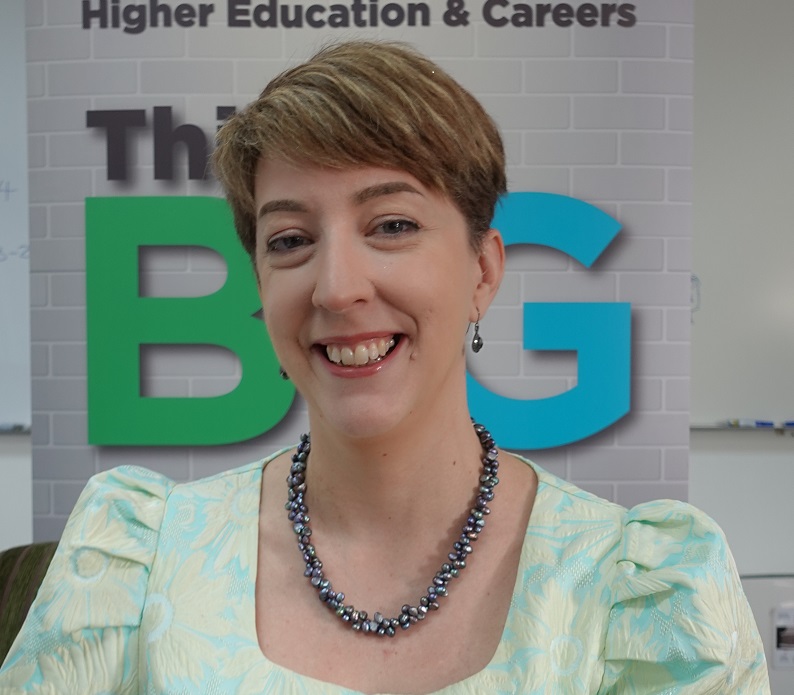Four ways to incorporate university careers services into your counselling toolkit
Counsellors can look to university careers services when helping students choose universities and, ultimately, understand what their return on investment might be

The current concerns about rising costs for tertiary education and questions around the return on investment (ROI) might provide the perfect opportunity for university career services to get more involved with student recruitment. As an international college counsellor, as well as an accredited careers practitioner, I feel the time is ripe for a convergence of these roles.
We are all familiar with the basic tenets of “right-fit” and exploring this when working with students.
However, as counsellors we can also think about how students will find jobs at the end of their degrees, including support for visas, support gaining internships and considering any industry partnerships a university might have, all of which ultimately help students make the right-fit decisions for them.
Bear in mind that at the end of the exploration process the student may choose not to go to university at all – but if they do, they will have made a far more informed choice.
This article outlines four easy ideas on how you can look at university career services and introduce them into your everyday counselling toolkit.
Explore global career service offerings
Simply providing links to university career services can help both students and parents to assess the ROI different pathways can give them. For example, the Careers Service at the School of Engineering Milwaukee contains excellent information on its corporate partners, as well as a whole host of resources prospective students and parents can explore when delving into the world of university choice.
Just over the border in Canada, the University of Toronto encourages students to select their areas of interest when reaching out to alumni and provides detailed information about what will be available for career support in relation to their specific majors.
This type of exploration, as part of right-fit discovery, can be an additional step for each student when deciding where to apply.
Compare, contrast and critique career service offerings around the world
To challenge both universities and students, counsellors can design fun activities around critiquing, contrasting and comparing university career services around the world, as part of focus groups or even lessons.
Gaining this type of feedback from students can be incredibly helpful so that universities know what they are doing well and what they can improve upon. For example, comparing the two career services highlighted above, in addition to a UK career service such as the one at Imperial College London, would be a beneficial exercise for students and counsellors in schools where students regularly apply to these three countries.
Knowing your students and their most common application countries can ensure resources are designed to have maximum impact on your student body.
Ask for career service professionals to give presentations
When counsellors are approached by universities to give academic talks, counsellors could also ask for talks by the careers services, focusing on what resources are available for international students, including the increasingly tricky aspect of student visas.
This would help create meaningful dialogue between students, parents and counsellors regarding employment post-university and about right-fit. This could include specific sectors. For example, we partnered with Art Pod to deliver a talk on creative careers with the title “Yes, you can get a job in Creative Arts”, and we regularly use the EdTech Group Millie to host panel discussions on a wide variety of careers, from biomed to UX design, often including talks from our own alumni.
Case studies – highlight how your students gained employment
Finally, counsellors can highlight alumni stories and case studies to show current students the many ways they might be able to gain employment, inclusive of the many different future pathways. These can be both informative and inspirational.
We recently posted a video on our internal Instagram account of our alumnus Hugo Bellemin, sharing how networking was the most important way he gained employment from his audio-visual degree in France.
We also connected with alumnus Daniel Woodroof, who chose to stay in Malaysia and not go to university; he is now a successful entrepreneur and CEO of Pandan Marketing. He shared his story via video in a recent lesson.
By speaking with numerous alumni, we have collected key case studies and identified five main ways that our students ultimately gain employment – it is so enjoyable to connect with alumni in employment and fascinating to hear their journeys after graduation. For our students, the five main ways are listed below:
- Networking
- Location of university and industry links
- Internships, including placement years, co-ops and so on
- University careers services
- Private careers services, such as Foundit, Reed or government-run initiatives such as TalentCorp, Malaysia.
It’s important to emphasise that each route involves hard work and initiative from the student too.
Highlighting to students and parents the offerings of a university career service, actively exploring and asking for career-related presentations and demonstrating the many ways employability can occur can spark helpful conversations around getting jobs and about ROI. These conversations are becoming more common when discussing right-fit, especially in a global context.




